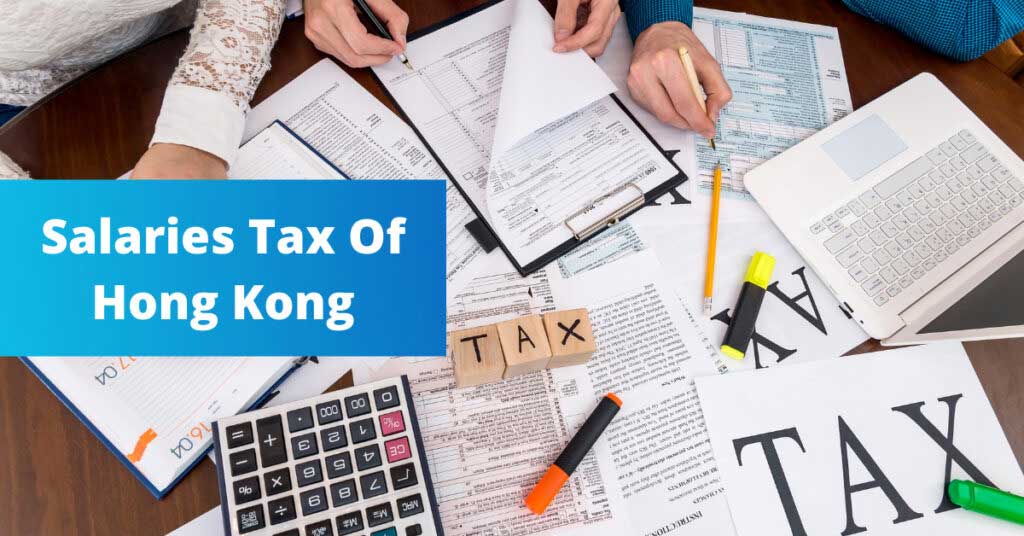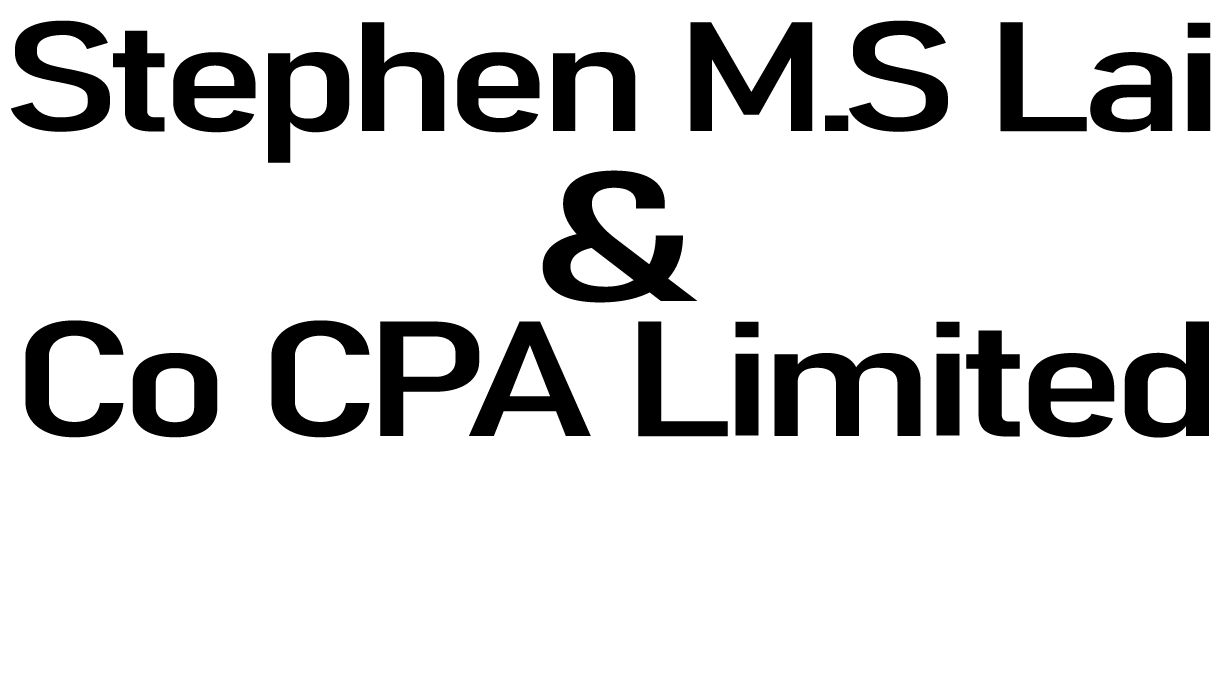
Salaries Tax Of Hong Kong (For Employees) – Explained
Table of Contents
Salaries Tax is levied on the majority of personal taxpayers in Hong Kong. The Inland Revenue Department (IRD) enacts the Inland Revenue Ordinance (IRO) to assess and collect salaries taxes.
This blog will cover the basics of salary tax for employees, including whether your earnings are liable to salary tax and what to do when reporting changes, paying tax and filing an objection to the assessment.
What is Salaries tax?
Personal income tax is known as salary tax in Hong Kong. Individuals are evaluated based on their annual employment income. Non-employment income, such as dividends and capital gains realized on a stock sale, is not taxed in the territory.
The requirements of the Inland Revenue Ordinance control the taxation of salaries. Salaries tax is levied on income received by employees, whereas profits tax is levied on income received by self-employed individuals.
Salary tax rates in the territory are among the lowest globally, which remains one of the key draws for relocating to the territory.
Salary tax is governed by the territorial principle, which means that it is only collected on income arising in or derived from Hong Kong employment.
The definition of income includes wages, salaries, bonuses, commissions, payments by the employer into a pension fund for the employee, and gratuities. It excludes either a pension from a source outside of Hong Kong or compensation for job loss.
Salary tax assessment is provisional and based on the previous year’s income; a tax credit is issued the following year if the assessment exceeds the actual income.
Key Features of Salaries tax
The following are the main aspects of Hong Kong’s salary tax:
Individuals are taxed at progressive rates on their net chargeable income (i.e., assessable income after deductions and allowances) ranging from 2% to 17%; or at a standard rate of 15% (2013/14 onwards#) on net income (i.e., income after deductions), whichever is lower.
In Hong Kong, there is no capital gains tax, income tax, or inheritance tax. Hong Kong adopts a territorial taxation basis. Individuals are solely taxed on income “earned in Hong Kong.”
Individual taxpayers in Hong Kong who choose personal assessment may be able to minimize their tax burden. Personal assessment taxes are determined at progressive tax rates on total income from all sources.
History of Hong Kong Salaries tax
In Hong Kong, the salary tax rate is a tax collected from individuals and imposed on different income sources like labor, pensions, interest, and dividends.
The benchmark used for international standards refers to the top marginal salaries tax rate for individuals. Revenues from the personal salaries tax paid by taxpayers are an important source of income for the government of Hong Kong. According to the latest statistics, Hong Kong’s government received HK$341.4 billion in tax revenue during the most recent tax year.
Personal income tax rules in Hong Kong have a lengthy history. The Inland Revenue Ordinance was Hong Kong’s first major income tax statute. This law was enacted in 1947. It levied income taxes throughout Hong Kong and was modeled after similar tax laws enacted in other British colonies.
As a result, while Hong Kong is no longer a Commonwealth member, its tax regulations are comparable to those of other Commonwealth members. In 1954 and 1967, review committees were established to revive Hong Kong’s income tax rules.
Hong Kong became one of the world’s main hubs for international trade, corporate activity, and finance during fast economic growth in the 1970s. As a result, additional salary tax modifications were required to accommodate this economic development.
Liability of Salaries tax
Hong Kong salaries tax is levied on income earned from any profit-making office or employment in Hong Kong.
To estimate the Hong Kong salaries tax payable, first, determine whether the income is earned from a Hong Kong-located or non-Hong Kong employment.
If the employee is working in Hong Kong, the income from that Hong Kong employment will be subject to salary tax. However, an exemption is available if the employee services are rendered in Hong Kong during that employment. If the employee is not physically present in Hong Kong for two months, he will not pay the tax.
However, even if the employee is not located in Hong Kong, if the employee is physically present in Hong Kong for more than 60 days and resigns, the income from that employment will be subject to Hong Kong salaries tax.
As a result, the salary tax levy applies to all employees, regardless of country. Salaries tax is levied at progressive rates, with a maximum rate of 17%. However, the total tax due is limited to a standard rate of 15% of net assessable income.
How to file Salaries tax?
Hong Kong’s fiscal year runs from April 1 to March 31 of the following year. Furthermore, the Inland Revenue Department (IRD) manages Hong Kong’s tax system. The IRD will issue individual tax returns by May 1. All tax returns must be submitted to the IRD within one month of the day they were issued.
Even if you have no income to report, you must still complete your income tax form. Then, it would help if you claimed that you have no income on that form. Meanwhile, married couples in Hong Kong can choose a joint assessment if the single assessment based on their combined income results in a lower tax burden.
In Hong Kong, sole proprietors must file their tax returns within three months of the day they are issued. You can file your tax returns either online or by mail. The IRD will send you a “Notice of Assessment” or tax bill when you have successfully filed your taxes.
Your tax bill will show the amount of tax you must pay for that year of assessment. If you disagree with the amount, you must notify IRD within 30 days of receiving your tax statement. You must then state your reasons for disagreeing. Allowable Deductions
The following are examples of allowable deductions:
It may include self-education expenses, i.e., course tuition and examination fees. An approved charitable donation may not be deducted for less than HK$100. Section 88 of the Internal Revenue Code contains information about tax-exempt charities.
Tax deductions may be claimed for mandated contributions to a mandatory provident fund system or contributions to an approved occupational retirement scheme. Voluntary contributions are not tax-deductible.
Interest paid on such loans is deductible when purchasing a home in Hong Kong. To be eligible for this deduction, you must be the owner of the property as shown in the land registry, and the dwelling is your place of residence (wholly or partially); you pay home loan insurance for that property.
Fees paid to a residential care home are deductible. Capital machinery depreciation utilized to generate taxable revenue is deductible.
Employe’s Return
For most people, salary payments from their employment will make up most of their total yearly employment income.
Like any other country, businesses in Hong Kong would be required to file the total yearly wage for each individual and retirement payments as MPF for each employee.
This income is reported in each company’s Employer’s Return (ER), which you should file after the fiscal year ends in April or May.
Once the company has submitted the Employer’s Return to the IRD, the employee will get a copy and will use the figures to file their tax form.
When filing their salary tax figure, those working in Hong Kong should refer to their Employer’s Return since the IRD will also refer to this submitted form.
How to reduce your Hong kong salaries tax?
It’s critical to understand that you may still lower your Hong Kong salaries tax liability even further and with little to no work. Let’s look at a few strategies to save money on Hong Kong salaries tax.
Home Loan Interest Allowance
Individuals in Hong Kong can claim a $100,000 home loan interest allowance on their residences for 15 years. You can also deduct the cost of parking if it is part of the property.
Individuals must own the property as the land cant be used as a place of habitation in part or whole. Moreover, the property must be rateable under Hong Kong’s Ratings Ordinance. A mortgage must be obtained from an approved, pre-qualified lender.
The rental income of a place of living provided by the employer Non-assessable earnings, including Severance and long service compensation made under the Employment Ordinance, are not assessable income.
Any sum over an employee’s entitlement under the Employment Ordinance, on the other hand, is subject to salaries tax.
Choose your tax rate
Of course, you cannot pick your tax rate, but Inland Revenue will enable you to choose between a flat rate of 15% and a progressive rate that rises to 17.5% after deductions, allowances, etc.
Generally, if you have a low to medium income, the progressive rate that rises to 17 percent is preferable. If you earn a lot of money, you should opt for a flat tax rate of 15%.
In 2021 and 2022, you will pay the tax at an ordinary rate (15%) on your net assessable income. The employee will pay this tax after business deductions, less concessionary deductions, and charitable donations but excluding personal allowances.
In rare circumstances where the total amount of permitted deductions exceeds an individual taxpayer’s assessable income in any assessment year, the excess can be carried forward forever to offset the taxpayer’s income.
Have a Family
Individuals in Hong Kong can benefit significantly from having children. You can claim $126,000 in the first year after your child’s birth and $63,000 in each succeeding year. While only one parent can file a claim per family, you can make claims for up to nine children.
Apply IRD
Hong Kong residents who expect to earn less than 90% of their previous tax year’s earnings can apply to IRD to defer some or all of their provisional salaries tax for the current year. It is useful if your sole proprietorship is expected to generate less revenue or if you plan to retire.
Mandatory provident fund scheme
Mandatory provident fund schemes are quick and simple, and they will save you a lot of money. Assuming you have a flat tax rate of 15%, you may deduct your MPF payments from your income up to $14,500, resulting in a $2,175 savings.
Conclusion
Hong Kong’s Salaries Tax – both corporate and personal salary tax – is among the world’s lowest. Hong Kong’s salary tax (also known as personal tax) is based on a progressive tax rate structure with five marginal tax brackets.
Individuals in Hong Kong can reduce their tax burden by opting for personal assessments. The taxes are then determined at progressive tax rates depending on the aggregated revenue from all sources under this assessment.
